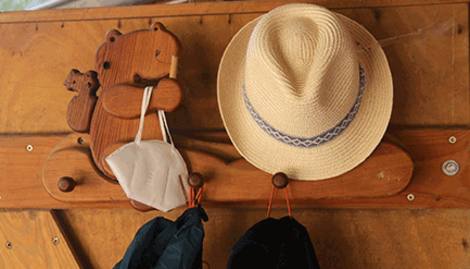The Covid-19 pandemic has been a truly global event and, since February 2020, has brought an unprecedented level of disruption into people’s daily lives, including disrupting the education of children around the world. Due to the threat of the virus, governments worldwide enforced strict measures, including large-scale lockdowns, limiting the numbers of people who could gather together, and border closures. Governments adopted these measures to reduce close contact between individuals, including in early childhood settings and schools. Some closed educational establishments completely, others kept them open only for students with special needs or for the children of ‘key workers’. How this was done varied greatly from country to country, even from state to state. Many countries closed educational facilities for at least part of the period, especially at the start of the pandemic; however, closures continued in many places into 2021, with restrictions continuing beyond that.
In order to find out how Steiner early childhood teachers responded to these challenges and what the effects have been on children, educators and families, the International Association of Steiner Waldorf Early Childhood Education (IASWECE) asked Neil Boland to investigate how the situation was in IASWECE member countries and produce a report.
So, in September 2022, those who work in Steiner Waldorf kindergartens and early childhood settings in IASWECE member countries were asked to complete two anonymous surveys online asking about their responses to and the consequences of the Covid-19 pandemic in their experience. The questions were designed in consultation with IASWECE colleagues. The first survey (1072 respondents) asked questions about well-being, changes observed in children, enrolment and staffing, and the effects of vaccine mandates. The second survey (308 respondents) comprised four questions: what changes to practice made during the pandemic are kindergartens keeping and why; how well Steiner education has been able to adapt to changed circumstances; the most important thing people have learned from this experience; and the single greatest challenge facing them. The surveys were available in 25 languages.
Everyone knows how the pandemic has affected them personally, professionally, socially, financially, and health-wise. Anecdotally, what we know from people we are in communication with is supplemented by accounts in the media. However, there is next to no information available on Steiner Waldorf early childhood education during the pandemic period that is based on research rather than anecdotes, and none from a wider perspective which looks at experiences from multiple countries. One of the aims of the project was to create the opportunity to hear from Waldorf educators speaking about their pandemic experience in their own words, whether they live in Brazil, Finland, Korea or Australia.
The study is now published in print by WECAN and is available online as a free download (see links below). A German translation is in preparation. A brief summary report has been created and is available in multiple languages.
We hope that the study’s findings will stimulate dialogue about next steps for the early childhood work based on what we are learning from the experiences of children, families and educators during the pandemic. If you wish to find out more about this study, please visit the links below.
Susan Howard, Neil Boland
Susan Howard has worked in Waldorf early childhood education for more than 40 years as a kindergarten teacher, early childhood teacher educator, and co-coordinator of the International Association for Steiner Waldorf Early Childhood Education.
Neil Bolandhas been a Steiner teacher in early childhood, primary and secondary settings. He works in the School of Education at Auckland University of Technology in New Zealand.
To order the book (in English): WECAN website
Full study in English: Free download
Full study in German: In preparation
Summary reports in multiple languages from Armenian to Zulu: Free download
Or visit the IASWECE website at https://iaswece.org/home
